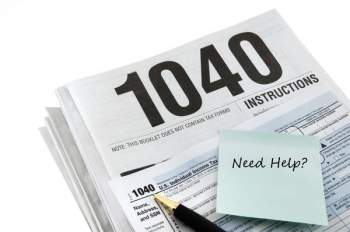
Indiana Tax

FULL List to Indiana Tax Forms
Individual Income Tax Forms
Form Indiana Individual Tax Return
Corporate Income Tax Forms
Form Indiana Corporate Tax Return
Sales Tax Forms
Form 47838 Sales and Use Tax Exemption Certificate
Form ST-115 Consumer's Use Tax Return
Property Tax Forms
Form 10068 Business Tangible Personal Property Return
Form 12980 Schedule of Adjustments to Business Tangible Personal Property Return
Form 53855 Business Tangible Personal Property Single Return
Form 53854 Business Tangible Personal Property Single Return
Form 51764 Statement of Benefits Personal Property
Form 11405 Business Tangible Personal Property Assessment Return (Long)
Form 11274 Business Tangible Personal Property Return (Short)
There are a number of taxes applicable to the state of Indiana, which includes one of the highest sales tax rates in the nation.
Indiana state sales tax – 7%, food and drugs exempt. Increased to compensate for capping property taxes.
Indiana personal income tax
3.4% of federal adjusted gross income, flat tax
Tax returns are due on April 15
There are 92 counties in Indiana, each with a unique tax rate for residents and non-residents. These taxes can range from less than 1% to slightly over 3%. Information on these tax rates is available from the State of Indiana Department of Revenue. The highest rate is Pulaski County, at 3.14%, followed by Jasper County at 3.05%.
Indiana property taxes
Fund local governments but approved by state
No more than 1% of property value
2% cap on farmland, rentals
Indiana excise taxes
Taxes assessed on vehicles, alcohol, tobacco, gasoline and are in addition to federal excise taxes.
Funds road repair and health programs
$.99 tax on cigarettes
$2.68 tax per gallon of liquor
Indiana inheritance tax
There are no inheritance taxes on estates left to spouses or charitable organizations. Parents and children can be exempted on estate taxes, up to $100,000 each. Brothers, sisters and their children re exempted up to $500 each. There are also no taxes on amounts paid to other beneficiaries totaling less than $100. Any amounts exceeding the exemptions must be reported to the state on Form I-H6. This also applies to non-residents as well as residents of Indiana.
Indiana payroll taxes
State Disability Insurance – none
State Unemployment Insurance - .565% to 8.362%
Exemptions
$1,000 exemptions for
Federal exemptions
Persons age 65 and older
Persons suffering from blindness
There is a $1,500 tax exemption for some children and an addition $500 exemption for seniors with an income less than $40,000.
Taxable income
Wages
Salaries
Commissions
Tips
Interest
Dividends
Royalties income
Rental income
Farm income
Business income
Pensions
Annuities
Partnership/shareholder income
Gain from sale of property
Corporate income tax - 6.5%
Misc
Social Security, railroad retirement and life insurance benefits are not taxed under Indiana law. Gaming winnings from the lottery, casinos or horse racing are taxed.
Military personnel receive a 180 day extension to file taxes upon leaving a combat zone. They must write “combat zone” on the tax form above their social security number. Property tax depends on the county but will generally not be assessed for those that did not reside in the county at the start of the year.
Tax forms need not be filed if the exemptions exceed gross income. Any income that was withheld to pay taxes can be claimed as a refund by this resident. One should notify the Indiana tax authorities if this is the case to ensure that you truly do not need to file a tax return and how you can claim your tax refund.
Indiana sales tax represents a distinguished and specified area of Indiana taxes. Indiana sales tax is explained in relation to a multitude of different aspects on life within the state. Some areas we will touch upon in this article include that of the application of Indiana sales tax to meals/banquets, non-profit organizations, photography, farm markets, and barbers/beauticians. In addition there also exists an area for deduction from Indiana sales tax, one of which includes those incurred by the sale of ethanol fuel.
In general banquets, or events with the mass production of food present, will be subject to Indiana sales tax. This will be either attached to each individual payment or to the group's total costs. Tips do not incur taxes, however, as long as they were given voluntarily by the customer or consumer.
In addition, Indiana sales tax does not accompany food delivery or beverage accompaniment. Meals held by non-profit organizations are exempt from the collection of Indiana sales tax as well. School meals from a college or university to its students are also free from such Indiana taxes. However, when holding such events within certain counties imposing taxes on beverages, for instance, they must be collected.
As we have already touched upon in the previous paragraph, non-profit organizations do most often qualify for exemptions to Indiana taxes, such as that of sales tax, which we are examining. In order for non-profit organizations to be eligible for such exemption, however, they must first register with the non-profit division of the "Indiana Department of Revenue." They will receive a taxpayer id number following such registration.
This applies to non-profit organization making both retail purchases as well as other types. The id number they receive is meant to be used on certificates of Indiana sales tax exemption. If they fall into the category of "social" organizations, however, they may not be eligible, as specified by the IRS. This means that organizations, such as "homeowner's associations," will be required to pay Indiana sales tax.
A lesser known area of sales taxation includes that of individual sale, such as that of photographers. When these individuals decide to sell their photos to customers, they fall into the category of retail, and therefore, must incur Indiana sales taxes. However, additional service charges will not incur any Indiana taxes whatsoever. Any costs due to modifications in color or tinting of a photograph must also be subject to Indiana sales tax.
While we have seen the institution of Indiana sales tax, we may be equally informed to know that sales tax deduction may also occur. A deduction of that kind is available when concerning that of ethanol fuel, which is distributed by way of "metered pumps for retail sale." In general it is usually recognized as the combination of 85% ethanol and 15% gasoline. Specifically, a retailer will be allowed to deduct that which is necessary for remission in the quantity congruent to the numerical digit acquired by multiplying 18 cents by the gallon amount of ethanol fuel sold.
NEXT: Iowa State Tax





















